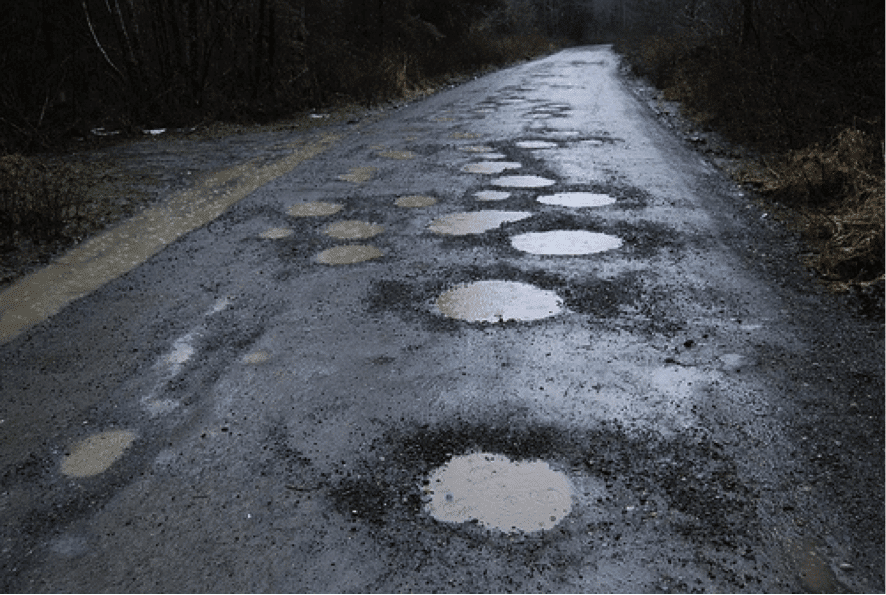Today’s post comes from guest author Jon Rehm, from Rehm, Bennett & Moore.
The collapse of the Interstate Highway-35W bridge over the Mississippi River killed 13 people and highlighted the safety hazards related to poor infrastructure. But most drivers face a less dramatic, but no less dangerous, hazard:
Potholes.
According to www.pothole.info, nearly 1/3 of the 33,000 annual truck and auto fatalities are related to poor road conditions. At least 27 percent of the major roads in the United States have been rated to be in poor condition. Though potholes are regarded as a problem – with good reason – in cold-weather states like Nebraska and Iowa, the worst road conditions in the country are in the warm-weather areas like the Bay Area, southern California, and Tucson, Arizona.

Bumpy roads combined with poor suspension can even lead to back injuries. This is especially true for over-the-road-truck drivers who also face health problems from lack of sleep, lack of exercise, and poor diet due to the demands of trucking. Drivers for Crete Carrier Corporation, Shaffer Trucking, Werner and K&B Transportation usually must litigate their workers’’ compensation claims in Nebraska. Fortunately, Nebraska would deem a back injury from driving over a pothole to be compensable, even if it were combined with a pre-existing condition. Other states have stricter causation standards that could preclude a driver from collecting benefits for such an injury.
Overdrive – Owner Operators Trucking Magazine” href=”https://www.overdriveonline.com/please-trump-dont-let-us-down-truckers-sound-hopeful-but-wary-notes-in-reaction-to-election-victory/” target=”_blank” rel=”noopener”>Truckers who, according to one poll, supported President Donald Trump over Hillary Clinton 75 percent to 25 percent, may have some relief from rough road conditions coming. President Trump has announced that he plans to spend $1 trillion on infrastructure, and he has appointed a task force that includes high-level advisers and his influential son-in-law Jared Kushner. Some observers in the trucking industry have raised concerns that the




